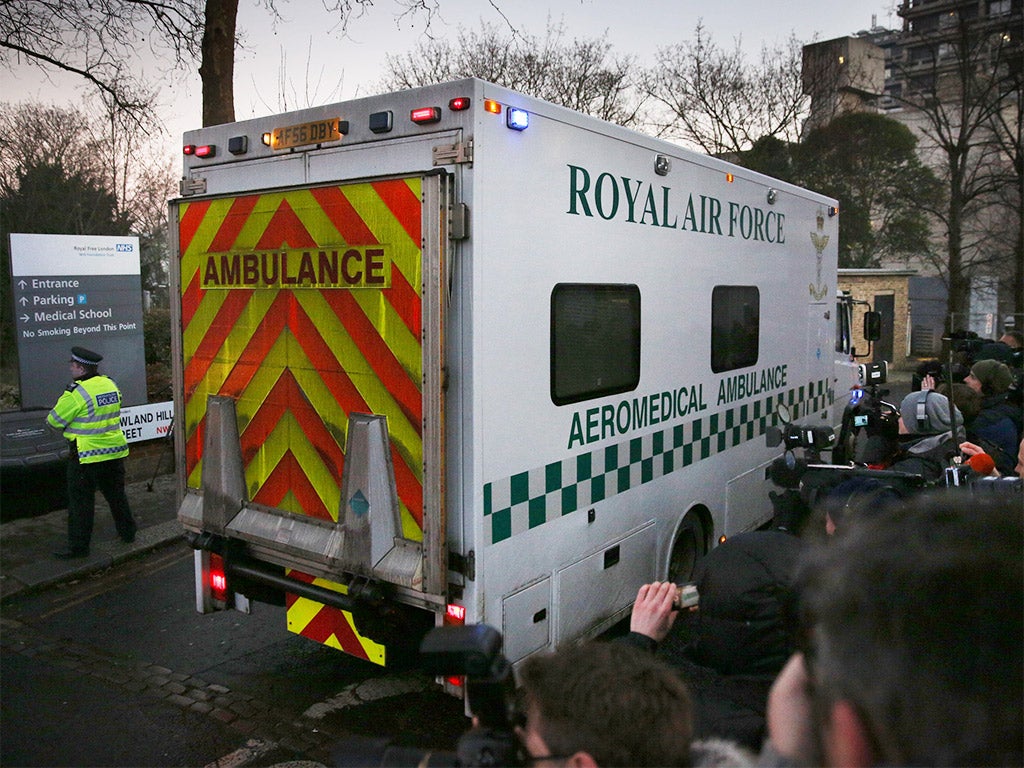Ebola in the UK: Risk of catching virus remains 'very low', say health officials
A large outbreak of the deadly disease in Britain is still unlikely

Your support helps us to tell the story
From reproductive rights to climate change to Big Tech, The Independent is on the ground when the story is developing. Whether it's investigating the financials of Elon Musk's pro-Trump PAC or producing our latest documentary, 'The A Word', which shines a light on the American women fighting for reproductive rights, we know how important it is to parse out the facts from the messaging.
At such a critical moment in US history, we need reporters on the ground. Your donation allows us to keep sending journalists to speak to both sides of the story.
The Independent is trusted by Americans across the entire political spectrum. And unlike many other quality news outlets, we choose not to lock Americans out of our reporting and analysis with paywalls. We believe quality journalism should be available to everyone, paid for by those who can afford it.
Your support makes all the difference.The arrival of a Scottish nurse with Ebola from Sierra Leone is "extremely unlikely" to result in a large outbreak of the deadly virus in the UK, health chiefs have said.
The NHS has stressed the likelihood of catching the disease remains "very low" unless a person has travelled to west Africa and had direct contact with an Ebola sufferer showing symptoms.
People can become infected with Ebola if they come into contact with the blood, body fluids or organs of an infected person, or have contact with an infected animal or contaminated objects.
But the disease is not as easily transmitted as a respiratory virus such as flu and is generally not spread by shaking hands, travelling on public transport or sitting beside an Ebola sufferer who does not have any symptoms, according to NHS Choices.
Symptoms include a fever, headache, joint and muscle pain, a sore throat, and intense muscle weakness, which usually develop five to seven days after infection, the NHS said.
It means there is time to identify people who may have been exposed, put them under surveillance and, if they show symptoms, quarantine them.
An NHS spokesman said: "The time it takes for symptoms to appear after infection ranges from two to 21 days, so it is possible that a person infected in Africa could arrive in the UK. But this is extremely unlikely to result in a large outbreak of Ebola virus disease in the UK."
The UK also has a robust public health system with trained staff and facilities necessary to contain cases of Ebola, the NHS said.
There have been around 19,500 cases of Ebola and more than 7,500 deaths from the virus in the latest outbreak, mainly across Guinea, Liberia and Sierra Leone, according to the World Health Organisation.
Pauline Cafferkey, a public health nurse at Blantyre Health Centre in South Lanarkshire, is receiving specialist treatment for Ebola at the Royal Free Hospital in north London after returning from Sierra Leone.
PA
Join our commenting forum
Join thought-provoking conversations, follow other Independent readers and see their replies
Comments